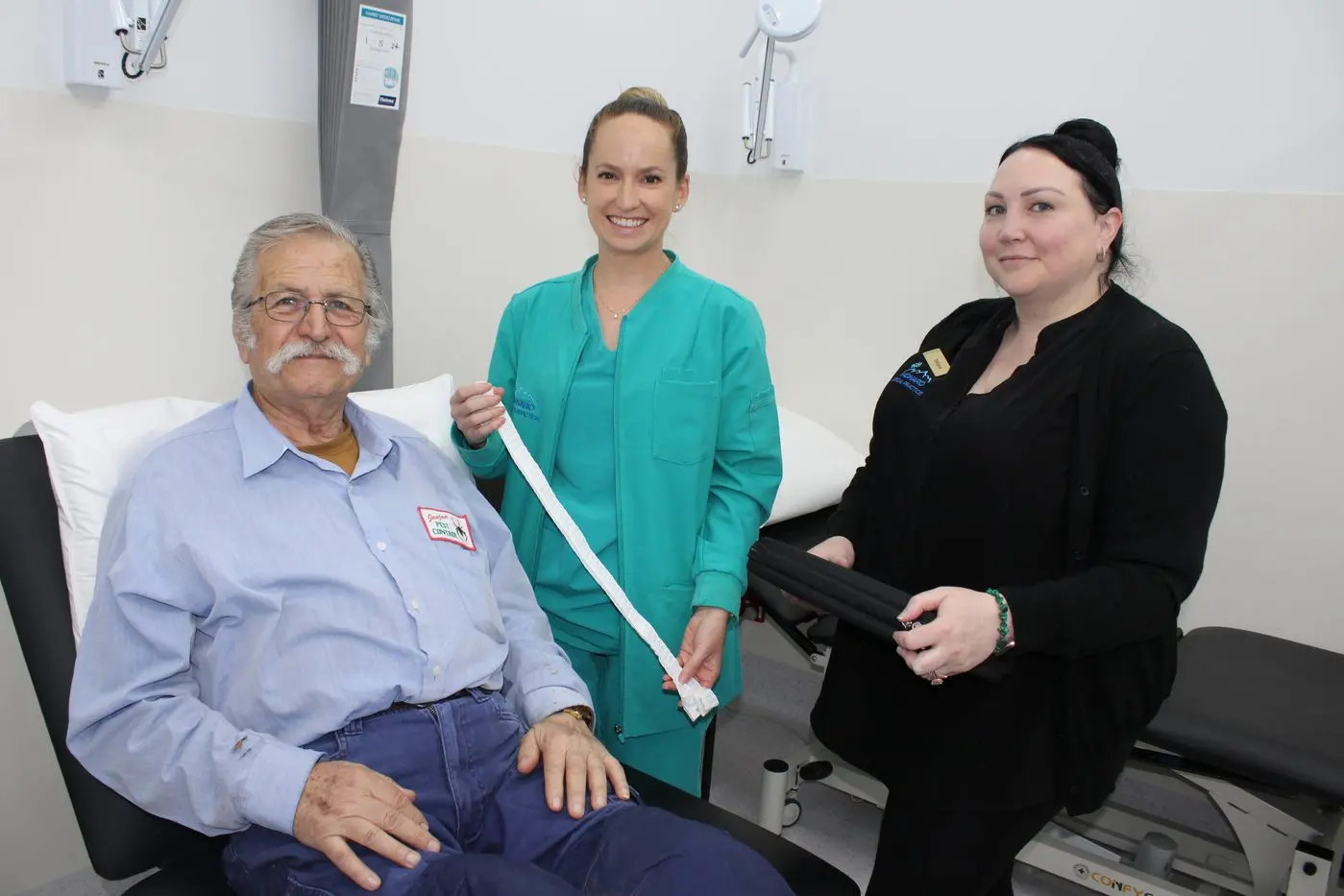PHOTO
RON Jaa Jaa never considered he might have a potentially life threatening health condition called sleep apnoea until he mentioned to his doctor during a non related consultation that he was waking up during the night with a dry mouth.
The 78 year-old Cooma resident, who does a lot of driving for his pest control business, had been experiencing symptoms like daytime sleepiness, and would often stop the car halfway through a trip to Canberra or Sydney for work, to close his eyes for a few minutes.
But he had not connected that with sleep apnoea, which, as Dr Dominic Manassa of Monaro Medical Practice says, is a serious health concern that can lead to a higher risk of accidents or other conditions.
Now that he has been made aware of the possibility, Mr Jaa Jaa was keen to take up the opportunity to be one of the first people to undertake a Level Two sleep study through the practice's new sleep clinic - the first of its kind in the region.
He is still waiting for the results of the test, but says he is keen to do whatever it takes to maintain good health if he is diagnosed with sleep apnoea.
With four in 10 Australians battling sleep issues and an increase in sleep apnoea cases around the region, Dr Manassa decided to open a sleep clinic offering the "gold standard" in sleep studies so that local people did not have to travel to Canberra and Sydney for investigations.
“Level 2 sleep studies are the gold standard for home based sleep studies and technologically advance giving us results comparable to in lab sleep studies without the excessive cost," Dr Manassa said.
"This service is accessible for all in our community so people can talk to their doctor about being referred for a sleep study with us or can contact our reception team to discuss this further."
The Level Two sleep study involves a patient being given a small monitor with wires and electrodes to take home and connect to the body before bed, then remove in the morning.
It alleviates the need to travel to big cities to spend the night in sleep clinics and is covered by Medicare.
According to Dr Manassa, it is the most accurate type of home-based sleep study available with respiratory physician scoring, reporting and interpretation, comparable to an in-lab sleep studiy.
"This is unlike most other home-based sleep studies which utilise a Level Three device that simply implements AI generated scoring and does not encompass brain wave recordings," he said.
Dr Manassa said sleep apnoea and other sleep related disorders were not just a nightly nuisance but a serious health concern that affected many people in the Snowy Monaro region and if undiagnosed, could have disastrous effects.
"These disorders disrupt breathing during sleep, leading to daytime drowsiness and impaired focus. As a result, individuals are at a higher risk for cardiovascular disease and permanent lung damage as well as for accidents, whether on the road or while operating heavy machinery," he said.
"With rising rates of undiagnosed cases, our community faces a growing threat to safety and productivity. It is crucial to raise awareness about sleep apnoea, encourage sleep studies, and promote healthier sleep habits to protect our residents and reduce risks.
"Together, we can shine a light on this silent epidemic and advocate for better health outcomes for all."
To be eligible for the test, patients must meet some criteria. Dr Manassa said the majority of patients with sleep apnoea were mail, had a high body mass index (BMI), a wide neck circumferance and had symptoms like feeling tired while driving or needing an after lunch nap.
Many also snored but might not be aware of it until a partner pointed it out; while others stopped breathing in their sleep.
Mr JaaJaa said he had found the machine simple to use and "didn't sleep any worse than I usually do" while wearing it.
"It was good to be able to do the test in my own bed in my own home with my own pillow and not have to travel to the city for it," he said.
Results from the tests are analysed by a Sydney based respiratory physician and usually available within a week.
Practice manager Stefanie Storey said a variety of treatment options were available if patients were found to have sleep apnoea. "It is not always about a CPAP device," she said, "but even if that is required, these days they are small and not too invasive to wear. Some patients may just need to lose weight or better manage their diabetes or cholesterol."





